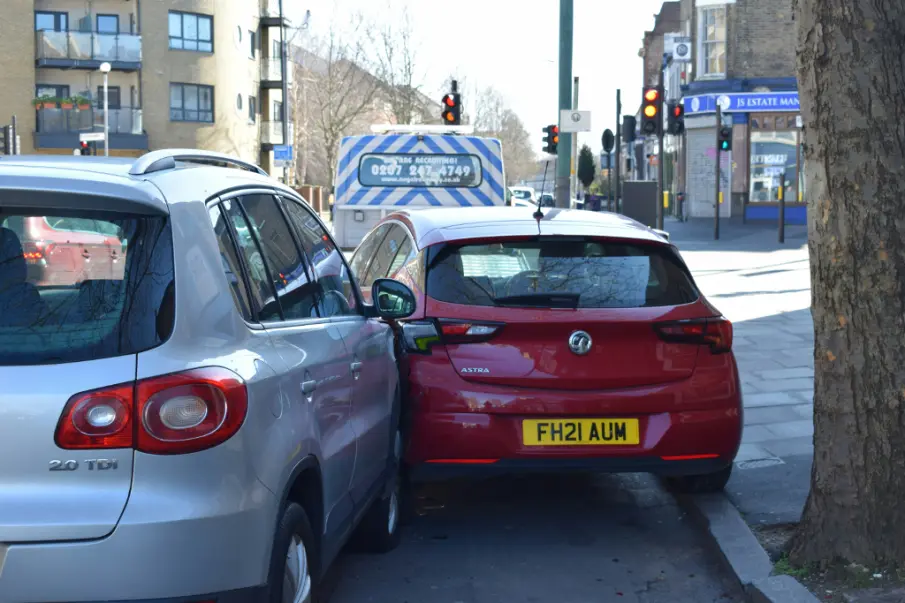Common Mistakes Drivers Make After a Fender Bender: How to Avoid Legal Trouble

Fender benders are never fun. The unexpected jolt, metal crunching, and realization that your day just got more complicated might be intimidating. It's easy to make mistakes that could have legal ramifications, even with minimal damage done. How you react to a collision with another vehicle or a parked automobile can make all the difference.
Let's look at some frequent mistakes that drivers make after an accident and how to prevent them so they can stay on the right side of the law.
1. Failing to Stay Calm and Assess the Situation
Panicking after a crash is a common mistake. You may lose your cool in a crisis, but maintaining calm is important. Breathing deeply and assessing the circumstance will improve your decision-making. Quickly inspect for injuries to oneself, passengers, and others. DO NOT drive away or overlook damage from a minor collision—this could lead to more serious legal concerns.
2. Not Reporting the Accident
Some drivers may not report small accidents, especially if the damage is minimal. Even if the accident involves a parked automobile, not reporting it is a big mistake. For instance, leaving the scene after accidentally hitting a parked automobile is a hit-and-run, which has substantial legal ramifications. When in doubt, report the event to the authorities. Reporting the collision to the police can protect you from potential disputes later on.
3. Forgetting to Gather Evidence
After a fender bender, it's easy to forget about evidence gathering. This can backfire if the other person sues you. To protect yourself, photograph all vehicles, the scene, and visible damage. Photograph license plates and other identifying features.
If it is a parked car accident, take photos of the damage and surroundings. This is useful if the car owner claims greater damage than what actually occurred.
4. Admitting Fault Too Soon
After an accident, it's normal to apologize, but admitting fault might be problematic legally. Even a simple “I'm sorry” can hurt you when insurance companies or lawyers assess liability. Stick to facts rather than admitting blame. Tell the cops what happened when they arrive, but avoid accepting blame. Liability can be difficult to ascertain, especially in a busy parking lot or congested location.
5. Not Exchanging Information Properly
Contact and insurance information must be exchanged after a fender bender. Nevertheless, a significant number of motorists either neglect or execute this procedure incorrectly. Get the other driver's name, phone number, address, insurance company, policy number, and car information (make, model, license plate number). If the other driver is uncooperative, document everything you can and let your insurance company handle the rest.
If it involves a parked car, leave a note with your number. Make it easy for the owner to reach you to avoid a hit-and-run report.
6. Ignoring Medical Attention
Avoiding medical attention, especially for minor injuries, is another mistake. Whiplash and internal damage may not exhibit symptoms immediately. If you skip the doctor, it may be hard to prove the collision caused your discomfort or injuries. Even if you feel fine, a medical exam might provide paperwork that may help you submit a claim or defend yourself against one.
7. Handling the Insurance Claim Incorrectly
Many drivers file insurance claims incorrectly. Mishandling the claim, such as underreporting damage to lower premiums or not providing enough proof, might delay or deny it. Communicate with your insurer honestly and thoroughly. Include images, police reports, and witness statements if available.
Inform your insurance company if the accident involved a parked automobile. It's best to be open because the other party may sue even if the damage is minor.
Wrapping Up: Stay Informed and Act Responsibly
Fender benders, whether with moving or parked cars, are distressing. However, avoiding frequent mistakes helps prevent future problems. Stay calm, document everything, and follow legal processes to avoid legal and financial issues.
More to Read:
Previous Posts:









